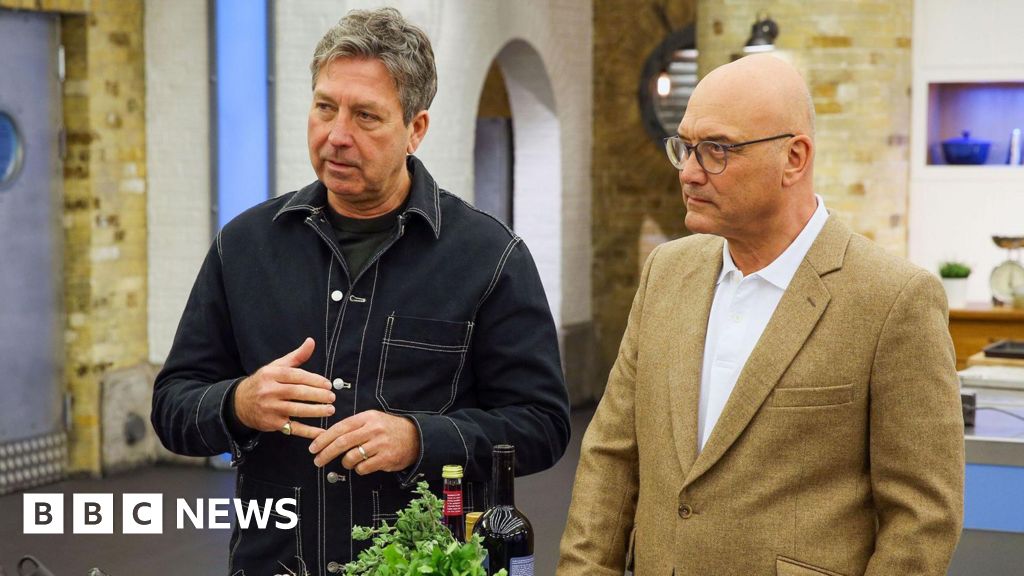Fall in viewers for Wallace and Torode's last MasterChef

```html MasterChef's New Series Launches Amid Controversy and Viewer Dip
The latest series of MasterChef has premiered on BBC One, drawing just under two million viewers for its debut episode. This marks a decline compared to last year's launch, which attracted approximately 2.7 million viewers. The season's broadcast follows a period of significant controversy, including the dismissal of long-time hosts Gregg Wallace and John Torode after allegations of misconduct.
Viewership Down Amidst Tumultuous Period
While the premiere viewership figures are lower than the previous year, direct comparisons are complicated by differing broadcast times and seasonal viewing habits. Last year's launch occurred earlier in the evening during a bank holiday in April, a period typically associated with higher television viewership. This year's premiere aired in August, a month known for lower overall television audiences.
Dismissal of Hosts and Backlash
Gregg Wallace and John Torode were dismissed last month following the results of an internal investigation into their on-set conduct. The investigation upheld a number of complaints against Wallace and one against Torode. The BBC's decision to air the pre-recorded series, filmed before the dismissals, has been met with mixed reactions. While the BBC stated it was "the right thing to do" for the participating chefs, some individuals, including women who came forward with allegations and the broadcast union Bectu, have criticized the decision, suggesting the broadcasts could be "triggering."
Allegations and Responses
The controversy surrounding MasterChef began with reports of misconduct allegations against Gregg Wallace. A subsequent investigation by the production company, Banijay, revealed that numerous complaints had been made, with a significant portion being upheld. These included allegations of unwelcome physical contact and inappropriate behavior. Wallace has publicly stated that he was cleared of the "most serious and sensational allegations" and has expressed remorse for any harm caused.
The upheld complaint against John Torode related to the alleged use of a racist term on the MasterChef set in 2018. Torode has stated he has "no recollection" of the incident and maintains that any racist language is "wholly unacceptable."
Critical Reception and Editing Speculation
Ahead of the series premiere, speculation arose regarding potential re-editing of the episodes to minimize the presence of Wallace and Torode. While both presenters appear throughout the episodes, some critics have noted a perceived reduction in jokes and banter between the hosts and contestants. This has led to claims that the show feels awkward and lacks its usual energy.
Several media outlets have published reviews highlighting the perceived changes. Ed Cumming, a critic for The Telegraph, suggested the BBC removed the jokes to demonstrate the seriousness with which they were taking the allegations, resulting in a series that "lacks pizzazz." Vicky Jessop of The Standard echoed this sentiment, noting a potential fear within the production team of anything either presenter said being "taken the wrong way."
Expert Perspective: The Impact of Controversy on Entertainment
Dr. Eleanor Price, a media studies professor at the University of Sussex, commented on the situation: "The MasterChef controversy highlights the increasing scrutiny faced by public figures and the entertainment industry in the wake of the #MeToo movement. While the BBC's decision to air the pre-recorded series aimed to balance the interests of the contestants and the public, it inevitably created a challenging viewing experience. The perceived editing and the absence of the hosts' usual banter reflect the delicate balance broadcasters must strike between addressing misconduct allegations and maintaining the integrity of their programming."
Future of MasterChef
The future of MasterChef remains uncertain. Gregg Wallace will be replaced by Irish chef Anna Haugh in the later episodes of the current series. The BBC has not yet announced plans for subsequent seasons or addressed the long-term impact of the controversy on the show's brand. The incident is reminiscent of other high-profile cases in the entertainment industry, where allegations of misconduct have led to significant changes in personnel and programming decisions. This situation underscores the evolving landscape of accountability and ethical conduct within the media landscape.
Analytical Viewpoint: The Evolving Landscape of Television
Media analyst Mark Lawson notes, "The decline in viewership for MasterChef's premiere is not solely attributable to the controversy. Terrestrial television is facing increasing competition from streaming services and on-demand content. However, the negative publicity surrounding the hosts' dismissal undoubtedly contributed to a sense of unease among viewers, potentially impacting their decision to tune in. The long-term success of MasterChef will depend on the BBC's ability to navigate this crisis and rebuild trust with its audience." ```
Originally sourced from: BBC Entertainment
